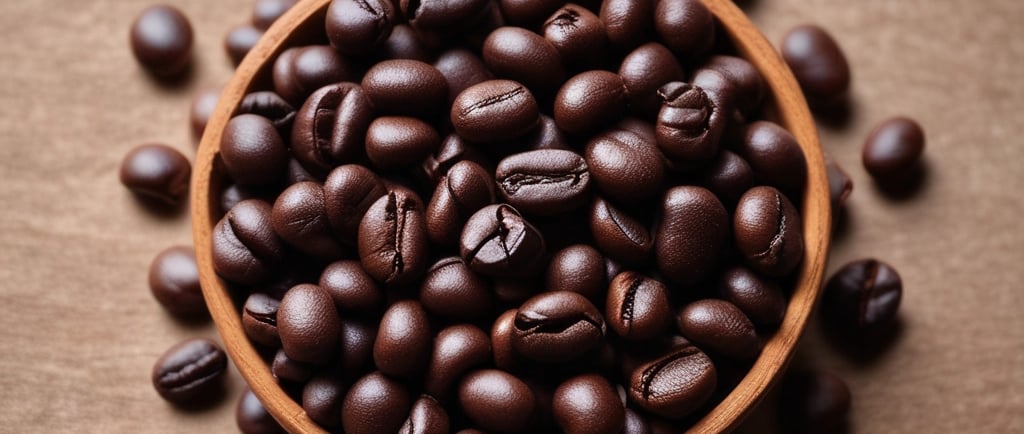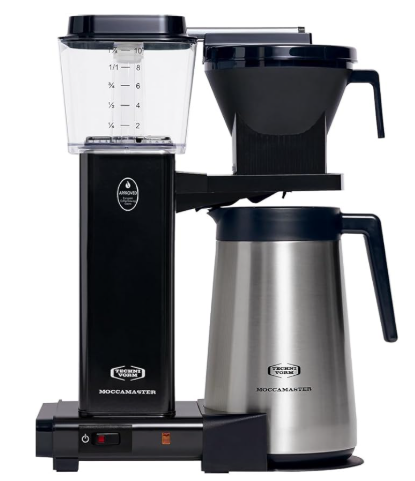The Allure of Arabica Coffee: Smooth, Sweet, and Acidic Flavors
METHODS
8/9/20256 min read


Introduction to Arabica Coffee
Arabica coffee, scientifically known as Coffea arabica, is recognized for its smooth and delicate flavor profile. As the most popular and premium coffee variety globally, it accounts for approximately 60-70% of the world’s coffee production. The Arabica plant is characterized by its sweet, mild taste combined with a pleasing acidity, which distinguishes it from other coffee types such as Robusta. The origins of Arabica can be traced back to the highlands of Ethiopia, where it was first cultivated over a thousand years ago. The beans were later transported to other regions, establishing Arabica as a staple crop across multiple coffee-growing areas.
Arabica coffee is predominantly grown in regions around the equator, referred to as the "Bean Belt." This area stretches between the Tropics of Cancer and Capricorn, featuring countries in Central and South America, parts of Africa, and Asia. Notable coffee-producing countries include Brazil, Colombia, Ethiopia, and Costa Rica, each offering distinct flavor profiles based on local cultivation practices and environmental conditions. Ideal conditions for Arabica growth include high altitudes, which aid in stress accumulation for the coffee cherries, resulting in enhanced flavor complexity.
The Arabica coffee plant is delicate and requires careful cultivation. It thrives at elevations between 2,000 and 6,000 feet, benefiting from cooler temperatures and abundant rainfall. These plants are also more susceptible to diseases compared to their Robusta counterparts, often leading to a more meticulous harvest process. The unique characteristics of Arabica beans—combined with their selective growing conditions—equip them with a reputation for quality that significantly impacts the global coffee market. Understanding the intricacies of Arabica coffee is essential for appreciating the complexity and elegance it brings to the coffee experience.
Characteristics of Arabica Coffee
Arabica coffee, scientifically known as Coffea arabica, is celebrated for its distinctive flavor profile that sets it apart from other coffee varieties. The taste of Arabica beans is often characterized by a smooth, sweet essence with notes that can range from fruity to floral. This complexity stems from the intrinsic qualities of the beans, which are influenced by numerous factors including altitude, climate, and soil composition.
The sweetness found in Arabica coffee is typically more pronounced than that of its counterpart, Robusta. This sweetness contributes to a pleasant smoothness that enhances the overall drinking experience. As the growing conditions change, so do the flavor nuances. For instance, Arabica beans grown at higher altitudes tend to develop a brighter acidity coupled with a more vibrant flavor profile. This elevation results in slower-growing coffee cherries, allowing them ample time to mature, thereby cultivating a richer, more refined taste.
Moreover, the climate plays a critical role in shaping the flavor characteristics of Arabica coffee. Cooler temperatures generally lead to a unique acid complexity that many coffee enthusiasts appreciate. The unique combination of these climatic elements can result in flavor notes that range from the sweet, chocolaty undertones to the more delicate hints of jasmine or citrus. Similarly, the soil type significantly influences the taste; for instance, volcanic soils may endow the beans with additional mineral qualities, enhancing their overall flavor impact.
In essence, the allure of Arabica coffee lies in its smoothness, gentle sweetness, and vivid acidity, all of which are shaped by environmental factors. Understanding these characteristics not only helps in appreciating Arabica but also allows connoisseurs to distinguish it in a diverse coffee marketplace.
Cultivation and Growing Conditions
The cultivation of Arabica coffee (Coffea arabica) is intricately linked to its growing conditions, which play a crucial role in the quality and flavor profile of the beans. This species thrives best in high elevation areas, typically found at altitudes between 2,000 and 6,000 feet (600 to 1,800 meters) above sea level. The cooler temperatures prevalent in these regions not only extend the maturation period of the coffee cherries but also contribute to the development of the distinct flavors that Arabica coffee is renowned for. At higher altitudes, the lower temperatures slow down the ripening process, allowing the sugars and acids in the cherries to develop more fully, resulting in a smoother and more complex taste.
Temperature plays a significant role in Arabica cultivation, with optimal growing conditions generally falling between 60°F and 70°F (15°C to 24°C). Fluctuations outside this range can adversely affect both the growth of the plants and the quality of the coffee produced. Therefore, a stable climate with minimal extreme variations is ideal for Arabica coffee production. Additionally, Arabica plants require consistent rainfall; the ideal annual precipitation ranges from 40 to 100 inches (1,000 to 2,500 mm). This consistent moisture supports healthy growth and ensures that the plants produce high-quality cherries.
Furthermore, the interplay between altitude and flavor development cannot be overlooked. Arabica coffee grown in mountainous regions tends to exhibit pronounced acidity and sweetness, creating a balanced cup. This is attributable to the unique environmental conditions of these locales, such as sunlight exposure and diurnal temperature variations. As the sun rises and sets, these shifts create a unique microclimate conducive to the nuanced flavor profiles characteristic of Arabica coffee. In summary, the high elevation, suitable temperature, and adequate rainfall combine to create the ideal growing conditions for Arabica coffee, ultimately influencing the exceptional quality of its beans.
Arabica Coffee in the Global Market
Arabica coffee holds a significant position in the global market, accounting for approximately 60-70% of the world's coffee production. Renowned for its smooth and sweet flavor profile, Arabica is favored by coffee enthusiasts and connoisseurs, making it a sought-after bean in specialty coffee shops and gourmet markets worldwide. Its popularity stems not only from its pleasant taste but also from its aromatic qualities, which are often enhanced by the diverse growing conditions and regions where it is cultivated.
The economic implications of Arabica coffee cultivation are substantial. Countries such as Brazil, Colombia, and Ethiopia invest heavily in Arabica coffee production, relying on it as a primary source of export revenue. The demand for high-quality Arabica beans has led to increased prices on the global market, providing both opportunities and challenges for farmers. While this trend benefits producers in countries with ideal growing climates, it also poses pressures related to sustainability and ethical practices in coffee production. As consumer preferences evolve, there is a growing emphasis on ethically sourced coffee that supports fair trade and environmentally friendly farming techniques.
In the context of competition, Arabica coffee faces rivalry from the Robusta variety, which is often regarded as more bitter and stronger in taste. However, Robusta’s higher caffeine content and lower cost appeal to different consumer segments, particularly in instant coffee and mass-market products. As such, the competition between Arabica and Robusta drives innovation in coffee production and marketing strategies. Moreover, current trends show a shift toward sustainability among consumers, leading to increased interest in organically grown and environmentally friendly Arabica options. Producers are adapting by implementing sustainable farming practices and promoting transparency in their supply chains. This focus on sustainability not only fosters consumer loyalty but also enhances the overall perception of Arabica coffee in the global market.
Coffee maker we would recommend for the use of this bean..
Moccamaster KBGT, Coffee Maker


About this item
HANDMADE IN THE NETHERLANDS SINCE 1968 Technivorm Moccamaster has for many years specialized in the manufacture of coffee makers. These coffee makers are all handmade, which means that they are manufactured and assembled by hand and individually tested in a live situation. It is the personal touch that makes our products unique, that’s why 5 YEARS manufacturer’s warranty is offered.
COPPER BOILING ELEMENT FOR PERFECT BREWING The boiling elements for the Technivorm Moccamaster are made of antibacterial copper. This guarantees the perfect brewing temperature of 92-96 degree C. Hot and delicious coffee, that’s Moccamaster’s promise!
UNIQUE DESIGN MADE OF SUSTAINABLE MATERIALS The Technivorm Moccamaster has a solid aluminium body that will last a lifetime with easy-to-clean removable BFA-free parts. Using recycable materials, the Technivorm Moccamaster is a sustainable long-lasting and silent coffee machine.
CERTIFIED BY ECBC AND SCA Technivorm Moccamaster works closely together with leading international coffee research centres such as the European Coffee Brewing Centre and the Speciality Coffee Association. The 10-cup coffee (1.25 L) is brewed quiet and fast in 5-6 minutes with Auto-Safety Shut-Off (AO) safety feature. Compatible with 1 x 4 filters.
Click 'Shop Now' to find on Amazon
Our Review
